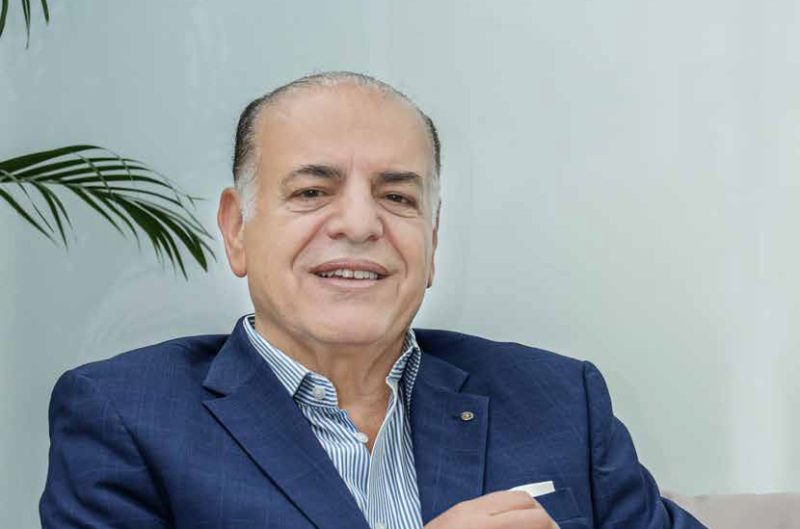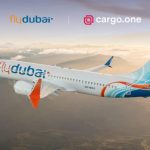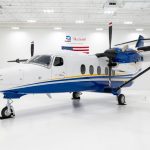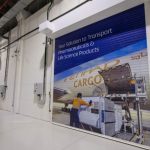SolitAir’s Big Bet: Expanding Air Cargo Operations Across Continents
SolitAir specializes in airport-to-airport logistics, leveraging its strategic location in Dubai South and its focus on service excellence. Committed to sustainability, the company has invested in electric aircraft and green practices, aligning with global net-zero goals.
Mr. Hamdi Osman, the visionary Founder & CEO of SolitAir, is a trailblazer in the logistics and supply chain world. With an illustrious career spanning decades, including pivotal leadership roles at FedEx, he has earned a reputation for redefining industry standards.
Hamdi’s knack for strategic thinking and operational excellence has been the driving force behind his success in streamlining logistics processes and fostering global connectivity.
He plans to expand into 22 cities across Africa by 2028. Following this, the focus will shift to establishing a strong presence in the Indian subcontinent, the ‘-stan’ countries, the GCC region, and the broader Middle East, extending as far as Istanbul.
His journey is a testament to relentless innovation and adaptability in a dynamic global market. At SolitAir, he continues to lead with purpose, empowering businesses to navigate the complexities of modern logistics.
Join us as we explore Hamdi Osman’s inspiring story and gain valuable insights into the future of logistics, innovation, and staying ahead in an ever-evolving industry.
Can you provide a brief overview of SolitAir and its core mission in the air cargo industry?
As a newcomer to the industry, SolitAir is fully dedicated to focusing on the middle mile of air cargo logistics. We aim to work inclusively, serving integrators, e-commerce businesses, freight forwarders, and airlines. These groups represent our primary clientele, as SolitAir operates as a B2B provider specializing in airport-to-airport logistics.
While our role ends at the middle mile, we collaborate with partners to ensure the continuity of the supply chain beyond our scope. Our mission is centered on supporting the express industry and catering to specialized cargo needs, including dangerous goods, pharmaceuticals, oversized shipments, and other unique requirements within the air cargo sector.
What has been your guiding vision for SolitAir since its inception, and how have you worked to bring that vision to life?
I spent 34 years with FedEx, and when I retired a decade ago, I thought my journey in this industry was complete. However, the world changed dramatically in 2020, and by 2021, air cargo emerged as a savior for the airline industry, sustaining it through challenging times. That shift captured my attention—and likely the attention of many airline CEOs globally.
A few of my colleagues and friends who lead airlines reached out, asking if I could assist on the cargo side. It felt like the right time to revisit this space. As I looked deeper, I realized that certain areas of the industry were fragmented, and others were in need of innovation.
With my experience, expertise, and the talented team I’ve assembled over the past six months, I believe SolitAir can address these gaps. This vision has been in the works for two and a half years, and the progress we’ve made in just the last three months reinforces that there’s significant potential for SolitAir to grow and make a meaningful impact in the industry.
Given your strategic location in Dubai South near World Central, what key operational challenges do you foresee in the coming years?
Having two airports in the same city is unique, but within a two-hour radius, there are four or five airports competing for business. This proximity creates challenges, especially in the air cargo industry, which is highly price-sensitive. Even a difference of a penny or a cent can influence decisions, leading customers to favor airports with lower operating costs.
However, where I come from—my time at FedEx—we always believed that price should come last. What truly matters is service. It’s all about providing exceptional service, consistently, and prioritizing the people behind it.
In my view, success boils down to two key components: people and service. The people you bring into your organization are the driving force—they’re the engine. And when you pair a strong team with outstanding service, pricing naturally falls into place.
With the rise of e-commerce, how has SolitAir implemented key operational and logistical strategies to connect 50 cities within a six-hour radius for on-time delivery?
To achieve this milestone, I focus on three critical elements, all centered around selecting the right partners.
First, it’s about surrounding yourself with the right people—starting with investors who believe in your vision and are willing to fuel your dreams.
Second, you need a team that can help shape your vision, mission, and core values. This foundation is vital for long-term success.
Third, and equally important, is carefully selecting your customers. In our industry, relationships are everything. Once you build trust with someone, they often become a lifelong connection.
I have a saying I share with my team, something I hope will be remembered for years to come: ‘Lose the sale, make a friend.’ Sales come and go, but friendships are enduring. When you create genuine relationships, you establish a foundation for lasting success.
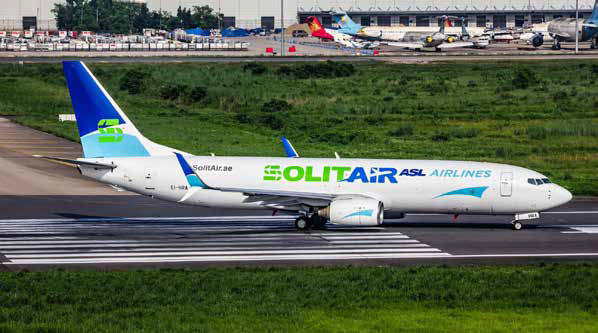 Can you share more details about the launch of SolitAir’s charter flight services, including key milestones and timelines?
Can you share more details about the launch of SolitAir’s charter flight services, including key milestones and timelines?
Absolutely! Our journey into charter flight services began with the arrival of our first aircraft on September 30th. We conducted our inaugural test flight to Riyadh on October 1st, 2024, which was a resounding success and marked our first integration flight.
Following that, we completed another successful test flight to Dhaka, Bangladesh, and our third destination was Mumbai, which was completed during the last of the October 2024.
With these milestones, we’re proud to establish connections from DWC (Dubai World Central) to three countries—Saudi Arabia, Bangladesh, and India. These flights are just the beginning of what we envision as a broader network of charter services.
How is SolitAir promoting sustainability in line with the UAE’s net-zero goal by 2030, while ensuring environmentally friendly operations and sustainable profits?
When I began exploring this space two years ago, I was fortunate to connect with a company specializing in electric aircraft. Unfortunately, I was just a week late to sign a Letter of Intent (LOI) with them, as DHL, a larger player, had already secured the agreement.
Still, I managed to sign an LOI for 12 electric aircraft from a U.S.-based company, which is expected to launch its first electric planes by 2026. These aircraft will be integrated into our network. Additionally, I negotiated with another company developing electric planes slated to take flight by early 2027. With them, I’ve signed an LOI for five more aircraft.
Even before our first aircraft, a 737-800 from Dublin, touched down, we had already taken proactive steps toward sustainability. I constantly remind my team to stay focused on what matters most. For us, that means achieving 100% compliance with all rules and regulations by 2027, not just in the UAE but across the GCC, especially in line with Saudi Arabia’s Vision 2030.
Looking ahead, we are also focused on expanding operations beyond the GCC to the Indian subcontinent and Africa, ensuring our commitment to sustainability extends across all markets we serve.
What are SolitAir’s key objectives for the next five years, and where do you envision the company in 2028?
By the end of 2028, my dream is for SolitAir to have full coverage across Africa. This means establishing five operational hubs within the continent. The inspiration behind the name SolitAir actually has a unique story. It originated from the word ‘solitaire,’ symbolizing the ring. However, a few years ago, when my daughter was just 11, she suggested dropping the ‘E’ from the name to simplify it. That’s how SolitAir was born, and it’s the name you see on our brand today.
In terms of expansion, our plan is to cover 22 cities in Africa by 2028. Beyond that, we aim to establish our presence across the Indian subcontinent, the ‘-Stan’ countries, the GCC region, and the broader Middle East, stretching as far as Istanbul.
As the saying goes, ‘the brain is the limit’. In aviation, we often say ‘the sky is the limit,’ but I believe it’s our minds that set the true boundaries. Currently, the global air cargo market handles 66 million tons annually, and projections suggest this could rise to 75 million tons in five years. Within our operating regions, the current volume is around 16 million tons, expected to grow to 20 million tons or more. If this growth rate of approximately 17% persists, the figure could even exceed 22 or 25 million tons by 2028.
My goal is for SolitAir to capture 0.5% of this market. While airlines like Emirates, Qatar Airways, Etihad Airways, and Turkish Air Cargo dominate with their wide-body aircraft, SolitAir will focus on narrow-body aircraft. Our aim is to be the fastest – both on the ground and in the air – ensuring quick turnarounds and delivering the speed and service that our customers demand today.










